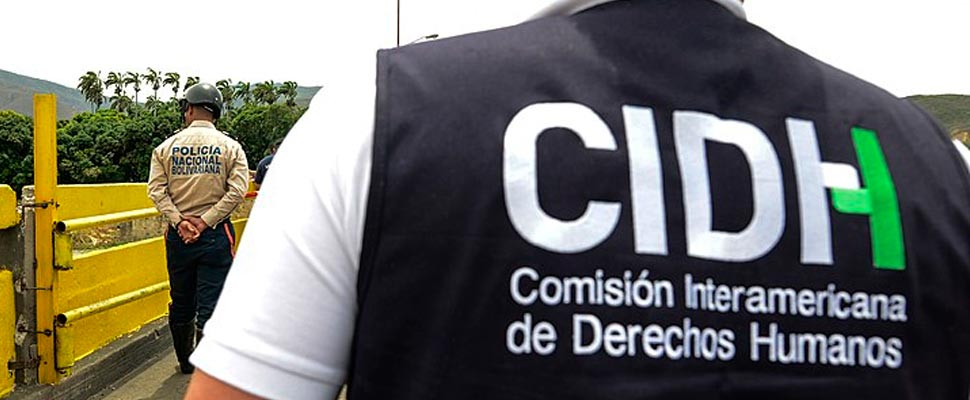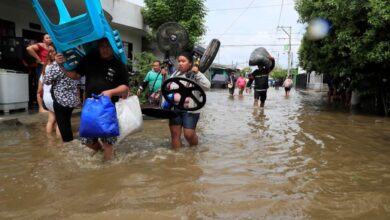The visit of the Inter-American Commission on Human Rights to Colombia is seen by alternative sectors as the only form of justice.

After a month of protests, sectors in Colombia request a visit from the IACHR. Photo: Flickr-IACHR
LatinAmerican Post | Santiago Gómez Hernández
Listen to this article
Leer en español: ¿Qué es la CIDH y qué puede hacer en su visita a Colombia?
The protests in Colombia have exceeded a month since they began on April 28, and it seems that they will not end. Like all conflicts, the versions, narratives, and figures are many, varied, and depend on who gives them. Those who support the strike accuse the government of various human rights violations; murderous and systematic police brutality; alliances between armed civilians and the Police, and a refusal to dialogue by the Iván Duque executive.
On the other hand, those close to the Colombian government criticize the blockades, the use of knives and firearms by protesters, rampant vandalism, damage and damage to third parties, and, in some specific cases, excessive force by part of the police.
Also read: Opinion: 5 reasons why Colombia and Venezuela must restore relations
Independent organizations such as NGO Temblores have confirmed, so far, 45 homicides by State Forces, 25 of sexual violence, and 1,649 arbitrary detentions. The Human Rights Watch organization has received 67 credible homicide complaints, of which they have been able to confirm 32 (29 civilians and 2 police officers). While the Office of the Attorney General of the Nation has in its account 20 deaths related to the protests.
Hemos recibido denuncias creíbles sobre 67 muertes ocurridas en Colombia desde que comenzaron las protestas.
Hasta ahora, hemos confirmado que 32 de estas muertes (29 manifestantes o transeúntes, un funcionario de CTI y dos policías) tienen relación con las manifestaciones.
— José Miguel Vivanco (@JMVivancoHRW) June 2, 2021
Faced with this great variety of sources and with such little clarity and confidence, many Colombian sectors request the intervention of independent international organizations.
What is the IACHR?
The Inter-American Commission on Human Rights is an autonomous body of the OAS, which represents independence from the most political bodies, such as the General Secretariat or the Assembly, dominated by sectors close to Iván Duque.
The head of the body is made up of 7 independent members who work in a personal way. It works in conjunction with the Inter-American Court of Human Rights and compliance with the Inter-American Charter of Human Rights signed by the member countries.
What can the IACHR do?
This institution has several functions, among which it stands out: investigating individual petitions in which it is presumed that an OAS member state has violated human rights.
It is also in charge of generating special reports of critical or alarming situations in a Member State. It also carries out visits to analyze in-depth to generate reports that will later be presented to the Permanent Council and the OAS General Assembly.
La @CIDH anuncia que realizará la visita de trabajo a #Colombia del 8 al 10 de junio para observar la situación de #DDHH en el marco de las protestas iniciadas el #28Abril. Asimismo, agradece la invitación del Estado y su aceptación de las fechas propuestas. 1
— CIDH – IACHR (@CIDH) May 31, 2021
Additionally, it can also request member countries to adopt precautionary measures to prevent irreparable damage to persons or to any institution, or request the Inter-American Court to implement provisional measures in cases of extreme urgency. Likewise, the IACHR has the power to present cases to the Inter-American Court for it to judge.





